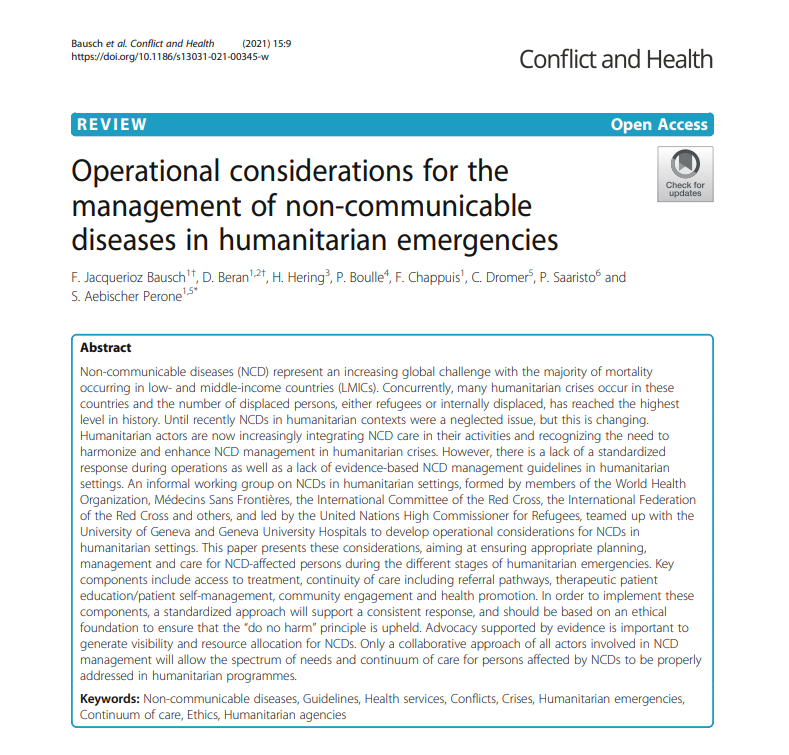United for Global Mental Health
4th Global Mental Health Advocacy Forum: Key Learnings and Take-Home Messages for Mental Health Advocates from the Forum’s Plenary Sessions
Report
05 Feb 2026
25 Feb 2021

Non-communicable diseases (NCD) represent an increasing global challenge with the majority of mortality occurring in low- and middle-income countries (LMICs). Concurrently, many humanitarian crises occur in these countries and the number of displaced persons, either refugees or internally displaced, has reached the highest level in history. Until recently NCDs in humanitarian contexts were a neglected issue, but this is changing. Humanitarian actors are now increasingly integrating NCD care in their activities and recognizing the need to harmonize and enhance NCD management in humanitarian crises. However, there is a lack of a standardized response during operations as well as a lack of evidence-based NCD management guidelines in humanitarian settings. An informal working group on NCDs in humanitarian settings, formed by members of the World Health Organization, Médecins Sans Frontières, the International Committee of the Red Cross, the International Federation of the Red Cross and others, and led by the United Nations High Commissioner for Refugees, teamed up with the University of Geneva and Geneva University Hospitals to develop operational considerations for NCDs in humanitarian settings. This paper presents these considerations, aiming at ensuring appropriate planning, management and care for NCD-affected persons during the different stages of humanitarian emergencies. Key components include access to treatment, continuity of care including referral pathways, therapeutic patient education/patient self-management, community engagement and health promotion. In order to implement these components, a standardized approach will support a consistent response, and should be based on an ethical foundation to ensure that the “do no harm” principle is upheld. Advocacy supported by evidence is important to generate visibility and resource allocation for NCDs. Only a collaborative approach of all actors involved in NCD management will allow the spectrum of needs and continuum of care for persons affected by NCDs to be properly addressed in humanitarian programmes.